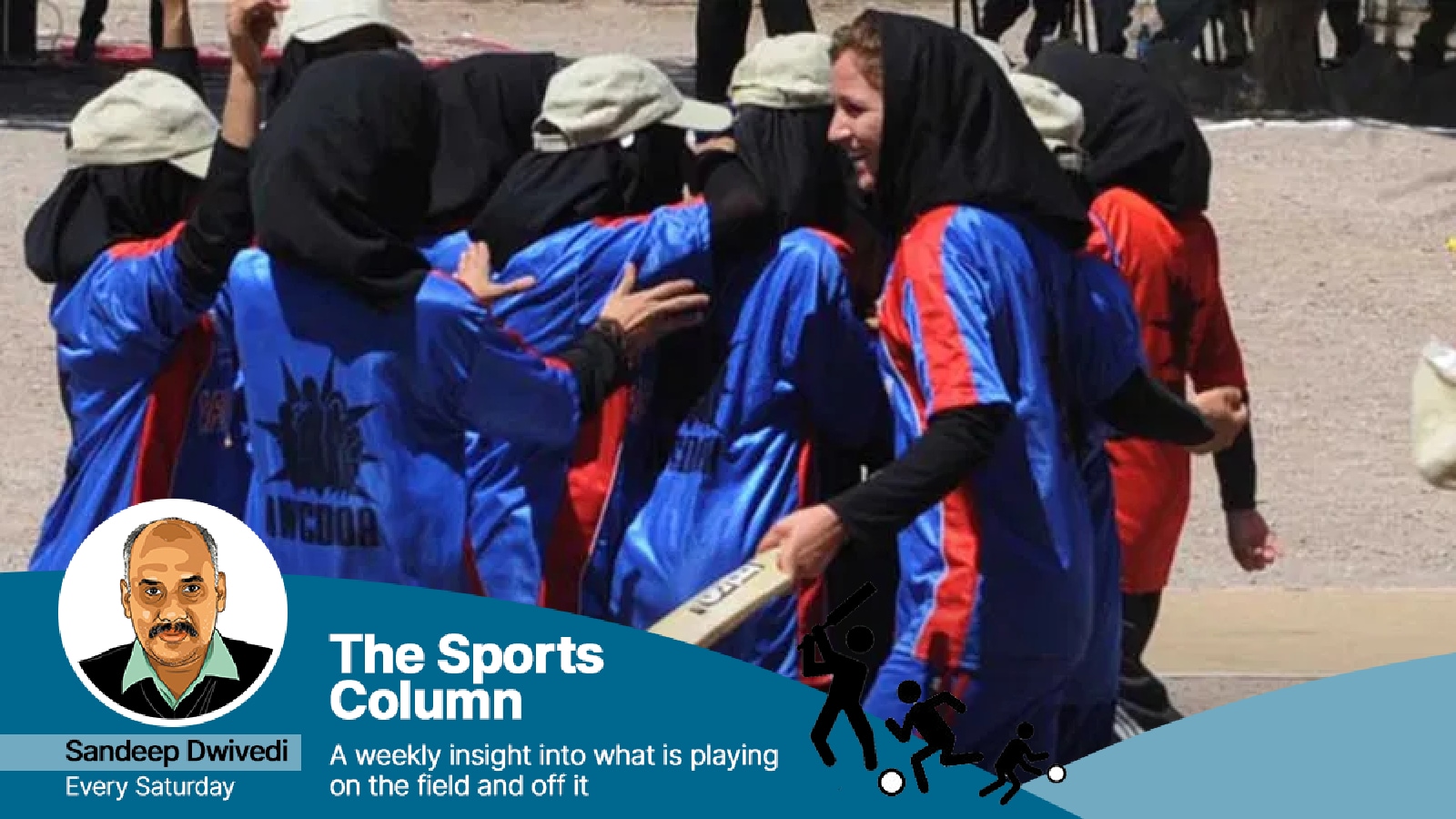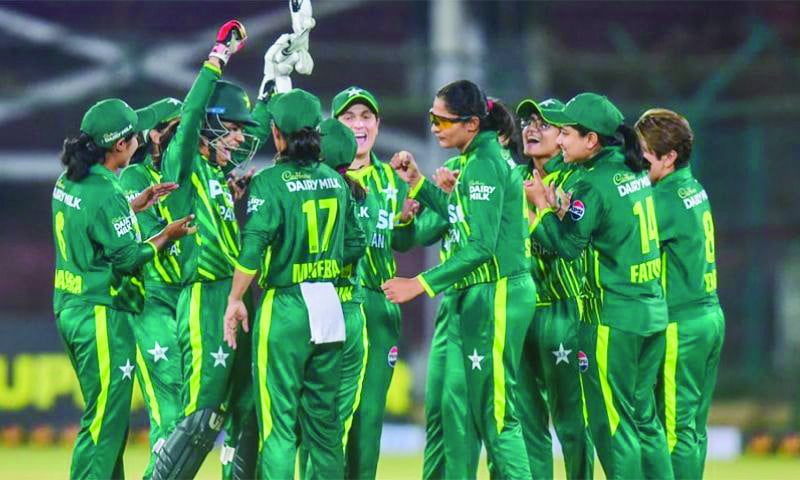Afghan women just wanna ‘Bend it like Bumrah’ but the world failed them

Gurinder Chadha’s much-acclaimed and charmingly funny 2002 movie Bend It Like Beckham starts with the football-crazy teen Jess imagining herself as David Beckham while watching England’s set-piece superstar on television. But then, that’s not what girls in families with Indian roots settled in Hounslow, West London are “supposed to do”. They can’t play ball, it’s Barbies for them. Not training partners, they are supposed to look for life partners. Good Indian girls also don’t get coached to master free-kicks, they are taught to get that perfect brown on their aloo-gobi.Jess’s elder sister is getting engaged, her mother, the highly-inflammable Mrs Bhamra, is in a tizzy. Losing her lid over her daughter’s indifference to festivities at home, she shouts: “Football, shootball! … Your sister’s getting engaged and you’re watching this skinhead boy!” That’s when Jess says something very important but is lost on her mother — and might have gone over the head of most parents of a girl-child across the globe, world leaders, especially the Taliban. “Mum, it’s Beckham’s corner!” Jess says in helpless exasperation, underlining what the sport and the sporting star mean to her — the world.It’s a short dialogue that captures the essence of the film, explains why one sees more boys than girls on sporting fields and also the staggering male-female gap in athletic endurance that gets used to undermine women’s sport. A Beckham corner, even for a girl, can be an event to switch off from the world around her and get inspirationally transfixed. Jess and other sporty girls too can have what are viewed as unreasonable sporting dreams and work towards making them come true.AdvertisementThe fact that young girls, like boys, too want to rush out of their homes, run in their lanes, allow the breeze to hit their faces and have dirt on their feet, is surprisingly lost on those who set the rules, and make the big calls. If half of this world is encouraged to kick a ball, jump over a hurdle, shoot an arrow and wrestle on the mat, why can’t the other half do the same? It’s elementary and thus fundamental to any human’s right to equality.Afghanistan’s captain Rashid Khan, centre, walks from the field with his players following their loss to South Africa in their men’s T20 World Cup semifinal at the Brian Lara Cricket Academy in Tarouba, Trinidad and Tobago, Wednesday, June 26, 2024. (AP Photo) Afghanistan’s captain Rashid Khan, centre, walks from the field with his players following their loss to South Africa in their men’s T20 World Cup semifinal at the Brian Lara Cricket Academy in Tarouba, Trinidad and Tobago, Wednesday, June 26, 2024. (AP Photo)In Afghanistan, women have historically been systematically ostracised. Things got worse when the Taliban returned to power in 2021. Among the many tribal doctrines they put in place was to ask women to cover themselves from head to toe and keep away from sports, besides education. It was a blow for the many Jesses in Afghanistan. If shattered dreams made a sound, Afghanistan could have heard their loudest blast around the time the Taliban were settling in Kabul.Those defying the rules would be arrested, imprisoned or stoned. Of late, things have turned worse. Under the new bizarre infra policy, no new building can have windows through which a passer-by can see women. The windows of existing buildings needed to be bricked or permanently covered. “Seeing women working in kitchens, in courtyards or collecting water from wells can lead to obscene acts,” the Taliban government spokesperson is said to have announced.The Afghan women cricketers had seen it coming and that’s why they fled their homeland.AdvertisementNahida Sapan was the Afghanistan team’s all-rounder and would also do scoring duty during games. Days after the Taliban takeover, when she was at the university, her professor told them the class was over and they all needed to go home for good. On the depressing trip back, the girls would see Kalashnikov-toting Taliban guarding the streets. Sapan knew that her days of playing cricket were over. In a matter of days, women’s cricket was reduced to ashes.That wasn’t enough for the Taliban, they wanted to track down each woman cricketer. “If we catch one, we will catch all of them,” they would proclaim. Sapan and other cricketers changed houses for days before deciding to cross the border to Pakistan, hiding behind their face-covering burqas. From Pakistan, with international support, the brave sporty Afghan women would fly to Australia.Afghanistan women cricketer Benafsha Hashimi. (Express Photo) Afghanistan women cricketer Benafsha Hashimi. (Express Photo)Since then, the “runaway” women cricketers from Afghanistan have been in Australia as refugees. While covering the Border-Gavaskar Trophy, The Indian Express reporter Sriram Veera would meet one of them — 21-year-old Benafsha Hashimi. Her heart-rending story of courage is about Hashimi going to impossible lengths and breaths, to keep the cricketer in her alive.Not very different from Sapan’s moment of panic, Hashimi too got an overwhelming scent of fear within days of the regime change. Her family sent her out to withdraw cash where the teenager would hear gunshots fired by Taliban soldiers near the bank. She knew it was time to leave, there was no chance she could play the sport her late father encouraged her to play with his brothers in the street.AdvertisementHashimi’s home in Kabul was very different from the Bhamra household, the one created by Gurinder in her movie. The feisty Afghan girl proudly shared how her father wasn’t like most Afghan males who longed for sons. “He treated me like a little princess. … distributing laddoos when I was born. He wanted me to study. ‘I am a special one I could do whatever I want’ – he would tell me.”Not just the family, it takes a village to raise a child with sporting dreams. But not in a country with regressive anti-women decrees and a world not truly committed to wiping out gender discrimination. That’s why Afghan’ sports women couldn’t do what they willed all their life and though the blame falls squarely on the Taliban this time, there are broader issues. Women only have seasonal and not fully committed backers who mostly offer lip service and practice double standards.Afghanistan players celebrate an Australia wicket during the men’s T20 World Cup cricket match at the Arnos Vale Ground, Kingstown, Saint Vincent and the Grenadines on Sunday. (AP Photo) Afghanistan players celebrate an Australia wicket during the men’s T20 World Cup cricket match at the Arnos Vale Ground, Kingstown, Saint Vincent and the Grenadines on Sunday. (AP Photo)Once again “Support Afghan women cricketers” is trending. International cricket will come to Pakistan with the Champions Trophy and this is another chance for the world leaders to launch into the chorus of hollow moral support.The other day UK prime minister Keir Starmer appealed to the ICC to follow the book and ban Afghanistan cricket. Next was South Africa’s Sports Minister Gayton McKenzie adding his two bits. “As a man who comes from a race that was not allowed equal access to sporting opportunities during Apartheid, it would be hypocritical and immoral to look the other way today when the same is being done towards women anywhere in the world,” he would say.AdvertisementIt’s a valid and timely shout out for the Afghan women but why have the influential global leaders allowed the Taliban government to implement anachronistic policies, starting with barring education? And in a case of terrible timing, India, disregarding Afghanistan’s gender apartheid, has extended a helping hand to the war-torn country and officially met the under-attack Taliban government. The irony is hard to miss. While the political class continues to remain blind to the Taliban way, it wants ICC to come down heavily on Afghanistan.It’s a pity that we live in a complex world that is governed by many-layered geopolitics. It’s a tragedy that the world’s most powerful grown-ups can’t sit together and allow little girls to play ball. The world has failed Afghan girls. All that the Sapans, Hashimis and their cricket sisters wanted was to run in their lanes, let the breeze hit their faces, dirty their feet and swing the ball like Megan Schutt. Or simply, “Bend it like Bumrah”.Send feedback to sandydwivedi@gmail.com




.jpg)







